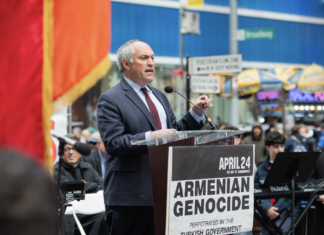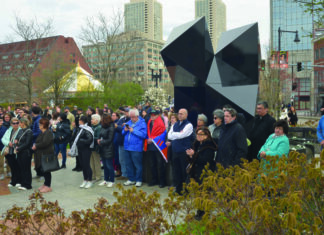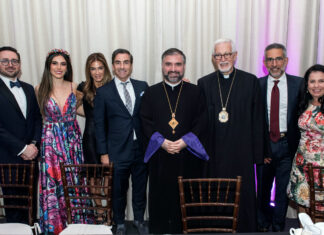TYNGSBOROUGH, Mass. — Born in 1914 to parents Nazareth and Dikranouhi (Chilingirian) in the town of Gurin in the region of Sepastia (Sivas), Tatios would only know the hometown of his family and forbearers for a year or two. In 1915 and 1916, the 10 members of his family would feel the pain of genocide.
At that time, the men of Gurin were gathered and removed by the Turks and never seen again. Those remaining were told they would be deported, and the Magarians sold/traded their household goods and belongings to get three donkeys, upon which they put the younger children. The women and children, along with elderly men, were forced to march by caravan southward. They would continue on foot through Kasaria, Albiston, Zeitun and Aintab. Then, in Ghatma, they were put on a train to Aleppo, Syria.
By now the family of 10 numbered five — two girls, Khungaper and Armenouhi, and three boys, Khatchadour, Magar and Tatios — and staying in newly-constructed gender-separated tent orphanages in open fields in Aleppo. Day by day the number of orphans increased. At some point, the middle brother, Magar, boarded a train heading back toward Aintab and was never seen again.
Later, the remaining four Magarians were separated again, with the two girls heading to Constantinople via Sis, and the two boys remaining in an orphanage in the Jebeil section of Beirut.
After years of turmoil, fear, death and uncertainty, there seemed some stability to life.
The eldest girl, Khungaper, would marry Harry Dadourian from Boston, Mass., and later send for her sister and two brothers and bring them to America. By 1924 a new life had begun for them all in a new land.









